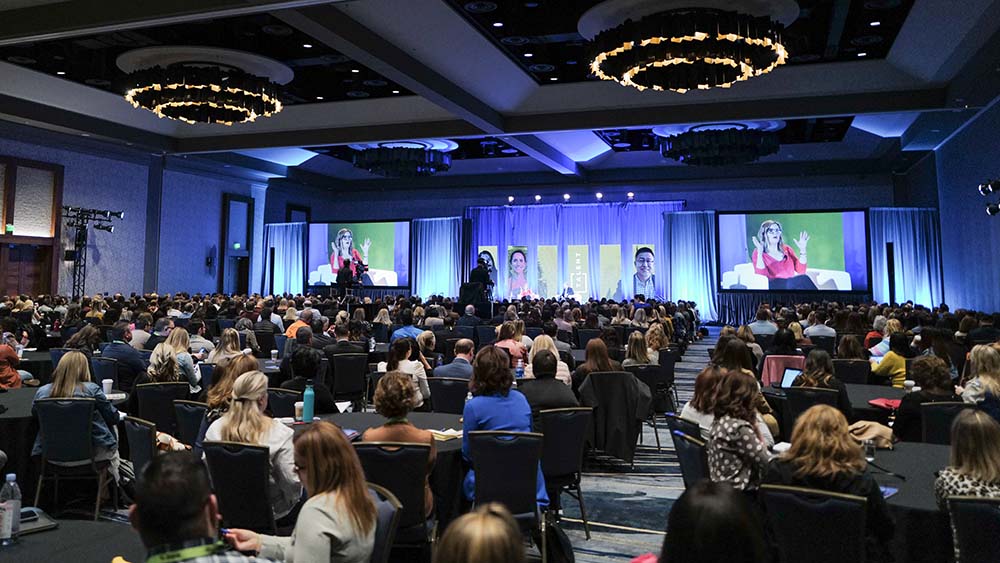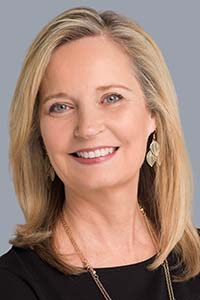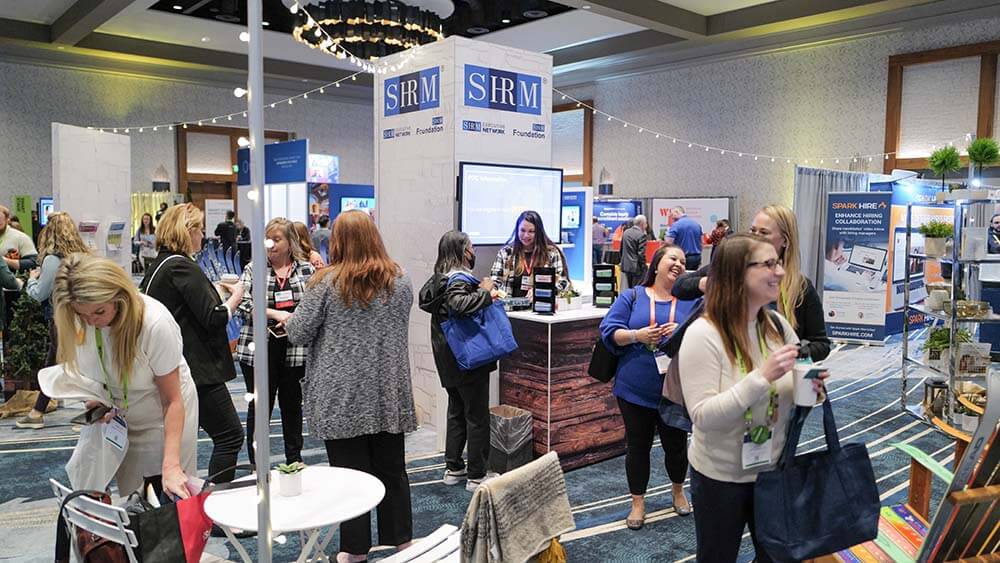
The 2022 SHRM Talent Conference & Expo took place April 10-13 in Aurora, Colorado and online, and emphasized how HR professionals’ actions — big and small — have a ripple effect on the lives of others. (Photo by Chris Williams)
America is facing a workplace mental health crisis, with burnout, exhaustion, and hopelessness more common among workers than ever before. But don’t take our word for it: Those are the findings of “Mental Health in America: A 2022 Workplace Report,” from the Society for Human Resource Management (SHRM) and SHRM Foundation, conducted in collaboration with Otsuka America Pharmaceutical. More than 3,400 human resource professionals who work in a variety of industries and are employed by U.S. organizations with 10 or more employees responded to the recent survey.
As the pandemic crystallized mental health issues in unprecedented ways, employers began to take mental health seriously, according to the report. Nearly 78 percent of organizations surveyed by SHRM currently offer workplace mental health resources or plan to offer such resources in the next year. This is nearly double the findings in Convene’s April Business Events Recovery Dashboard — around 40 percent of planner and supplier respondents said their employers offer workplace mental health resources.
But while mental health has risen to the forefront for most organizations, only around one-third of HR professionals in this survey claim offering mental health resources is a “high priority” for their organization, while another two out of five HR professionals indicate it is a “medium priority.”
The belief that offering mental health resources has lasting benefits for organizations that provide them is shared nearly universally among the HR respondents: Nearly nine out of 10 professionals think that offering such resources can increase employee retention and increase productivity, and 72 percent believe they attract new talent.
“It is clear that the need to establish mental health as a top priority within our organizations is essential,” said SHRM Foundation President Wendi Safstrom. “We must act now if we wish to create a world of work that allows both employers and employees to thrive and lead healthy, productive organizations.”
Meanwhile, a recent survey conducted among 520 HR professionals in the U.S. and U.K. found that HR professionals themselves — left to shoulder macro workplace changes and issues during the pandemic — have experienced serious burnout. Nearly all — 98 percent — of the respondents to the study by Workvivo, an employee experience app, said they have felt burned out at work in the past six months; around four out of five are open to leaving their jobs; and seven out of 10 do not feel valued at their organization.

Jeaneen Andrews-Feldman
How the HR Pros Are Meeting
We turned to Jeaneen Andrews-Feldman to learn how, at such a pivotal time for human resource professionals, the association that supports them is approaching its 2022 Annual Conference & Expo, taking place in New Orleans and virtually, June 12-15. Andrews-Feldman, SHRM’s chief marketing and experience officer, told Convene that SHRM’s choice for one of the Main Stage speakers — Arianna Huffington — “tells you how important mental health and wellness is” to this group. Huffington is the founder and CEO of Thrive Global, “which is all about mental health and wellness,” Andrews-Feldman said. “I think that speaks a lot to the focus that we believe employers and employees should have around this.”
SHRM also will be promoting its Workplace Mental Health Ally Certificate, launched last fall by SHRM and the SHRM Foundation in partnership with Psych Hub. The online learning program consists of eight multimedia courses covering common mental health conditions, substance use, suicide, safety planning, diversity and bias, and communication skills. The initiative was developed to “accelerate the movement to eliminate the stigma of mental health in the workplace and foster an organizational culture where workplace mental health can be discussed openly,” according to a statement announcing its release. Andrews-Feldman said the certification will help “HR professionals and people managers understand critical mental health topics and then identify the appropriate approaches when they’ve got an employee or a colleague who requires some care.”
SHRM22’s conference theme — “Cause the Effect” — also speaks to the event’s mental-health focus. “The idea behind the theme is that a single individual could make a difference in somebody’s life,” Andrews-Feldman said. “We talk about [HR professionals] impacting the lives of 115 million people on a daily basis in the workplace. When you think about what one person can do, it has a ripple effect [in terms of ] having empathy and helping where [employees] need support. Not only are you impacting their work life, but you’re impacting their full self, their homelife — when they go home and interact with their children who may have been struggling at school that day, or their spouse.”

SHRM’s 2022 Talent Conference offered an expo as well as sessions across seven content tracks. One of the speakers was Andi Campbell, chief growth officer for WellSpark, which delivers holistic wellbeing programs to thousands of employees across the U.S. (Photo by Chris Williams)
Creating Distinct Experiences
SHRM22 is a hybrid event, and SHRM’s event department has specialists who understand how to deliver a virtual event, and staff on site responsible for delivering the in-person event, Andrews-Feldman said, which are being held in parallel. “They work together in a collaborative way. It’s a live event — you’re either delivering in person or you’re delivering livestreaming.”
The goal is to provide each audience with a different experience. “We did find during the pandemic that a virtual event can deliver, maybe not the same exact experience as in person, but an experience that can rival it,” Andrews-Feldman said. “And that opens up the door to those people that may not be able to attend an in-person event,” she said, providing them with “the content that they need.”
With wellbeing as a major focus, SHRM’s virtual conference experience will include plenty of breaks, including mental exercises, called “brain-bite breaks” to “stimulate your thinking,” Andrews-Feldman said. “People can’t sit at a computer for six hours straight.” The virtual conference will also include video interviews with speakers and other online-only content.
To connect the virtual and in-person audience, SHRM has a longstanding online community platform that has been embraced by members, called SHRM Connect. Andrews-Feldman said she has been amazed by how many people have engaged with each other via this online community and then planned face-to-face meetups. “It brings together people with similar needs, desires, and kind of an intent to learn. And that intent to learn can be certainly while you’re there in person, or it can be getting together later on.”
The in-person conference format will offer participants more white space and opportunities to relax than pre-pandemic programs, said Andrews-Feldman, who is optimistic about the in-person turnout. “What we’re seeing now is that more people want to be in person,” she said. When Convene spoke with her in April, Andrews-Feldman said she was expecting that attendance would be a 60/40 split — three out of five in-person registrants and two out of five virtual participants.
Regardless of how they experience SHRM22, they will find the conversation around supporting the mental health and wellness of a post-pandemic workforce a major focus. “Organizations are talking about mental health,” she said. “It’s not something that is not discussed or hidden any longer. People feel free to be able to seek the help that they may need, or talk about it with their HR organizations, or even their management teams. I think that’s the good news.”
Michelle Russell is editor in chief of Convene.
